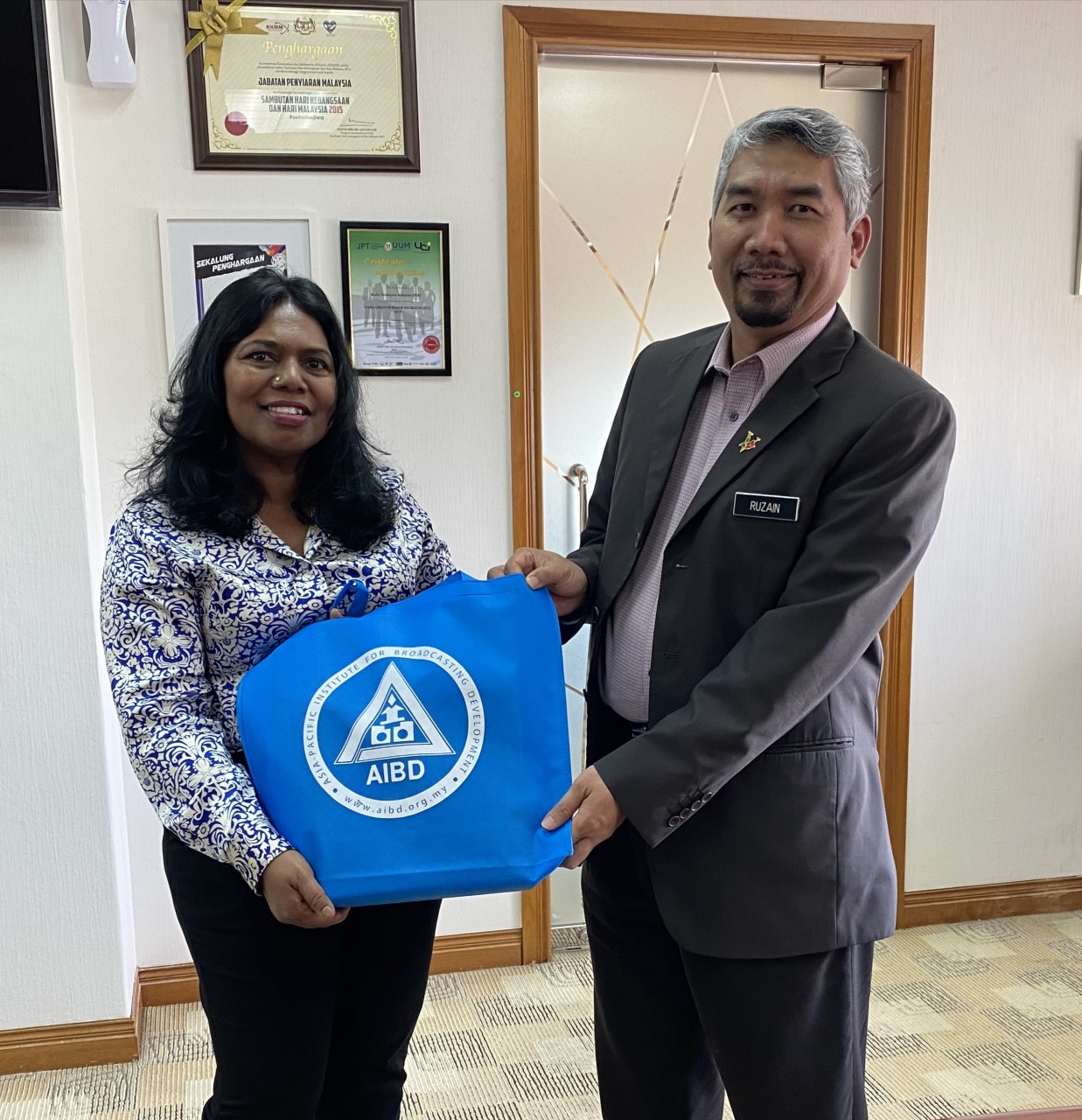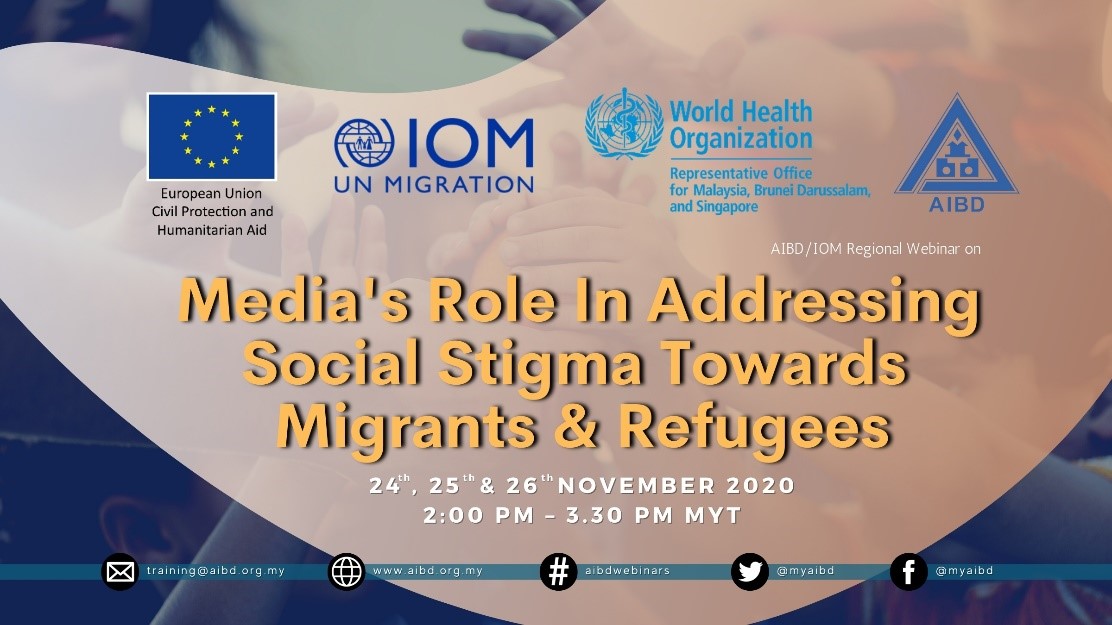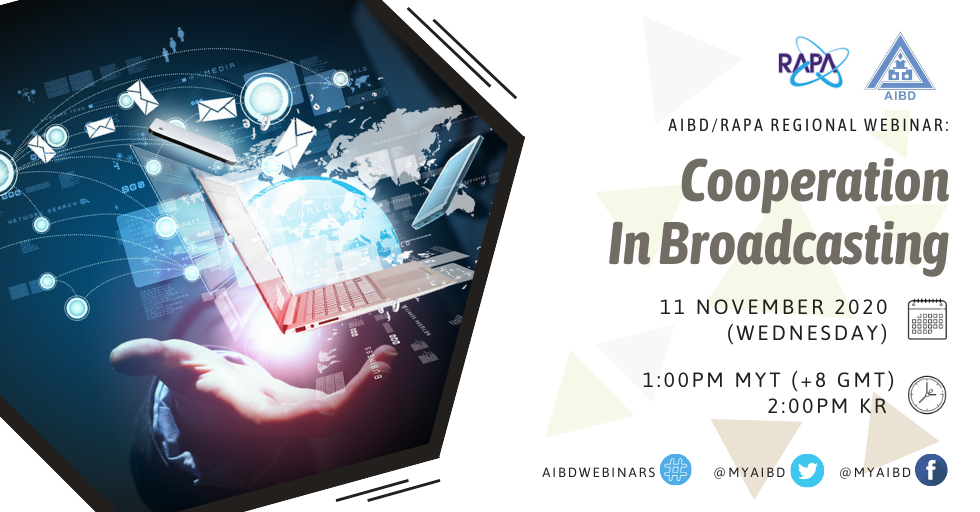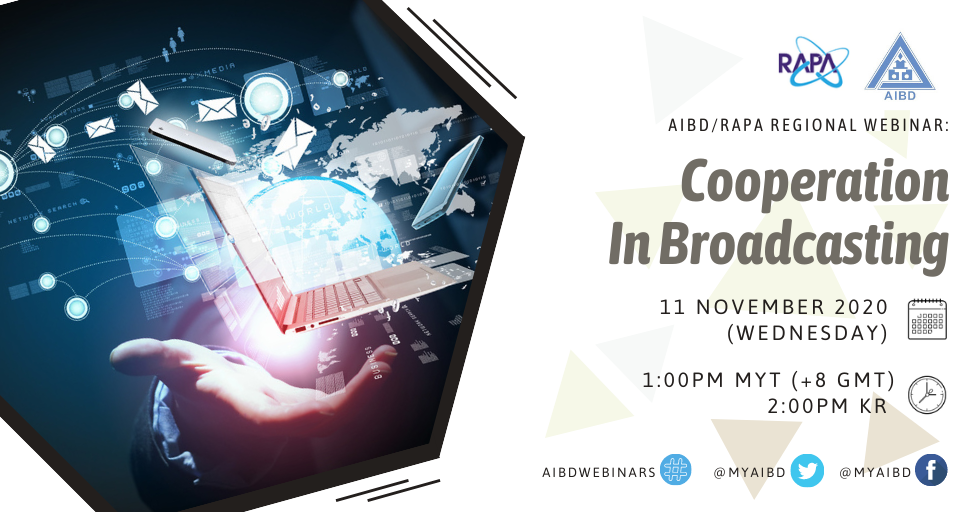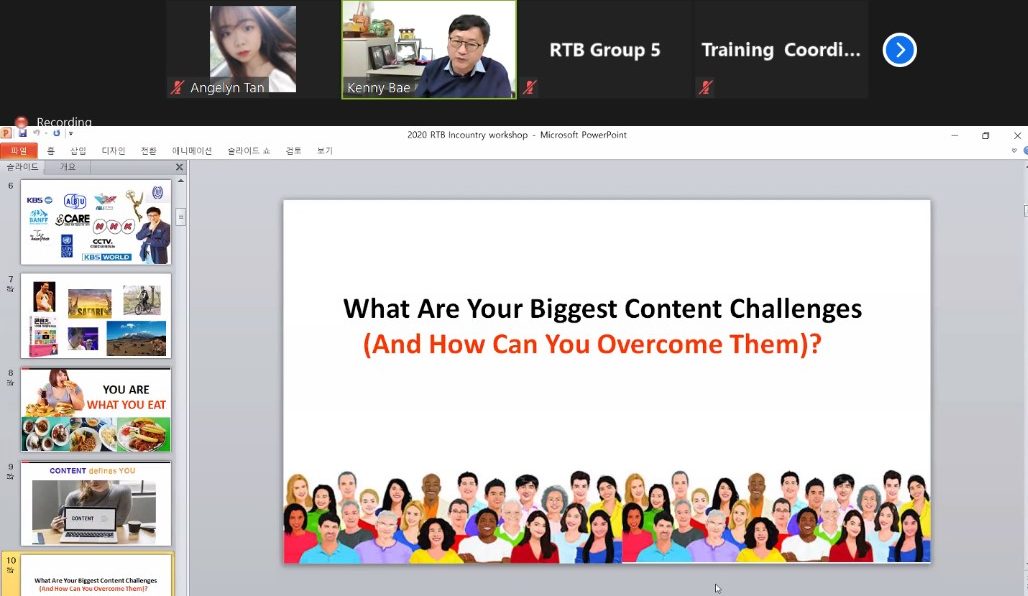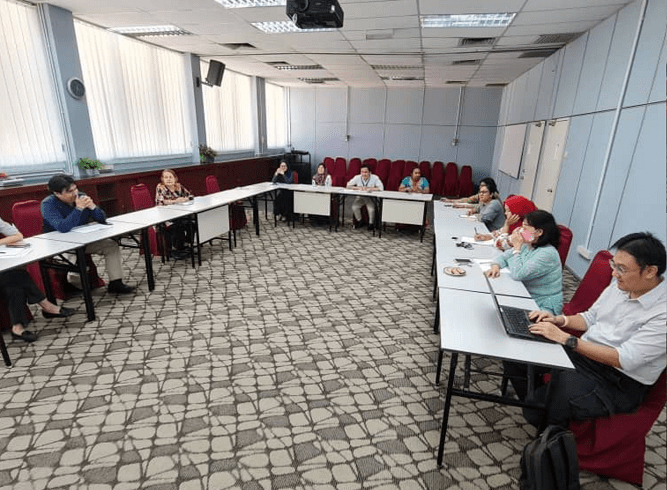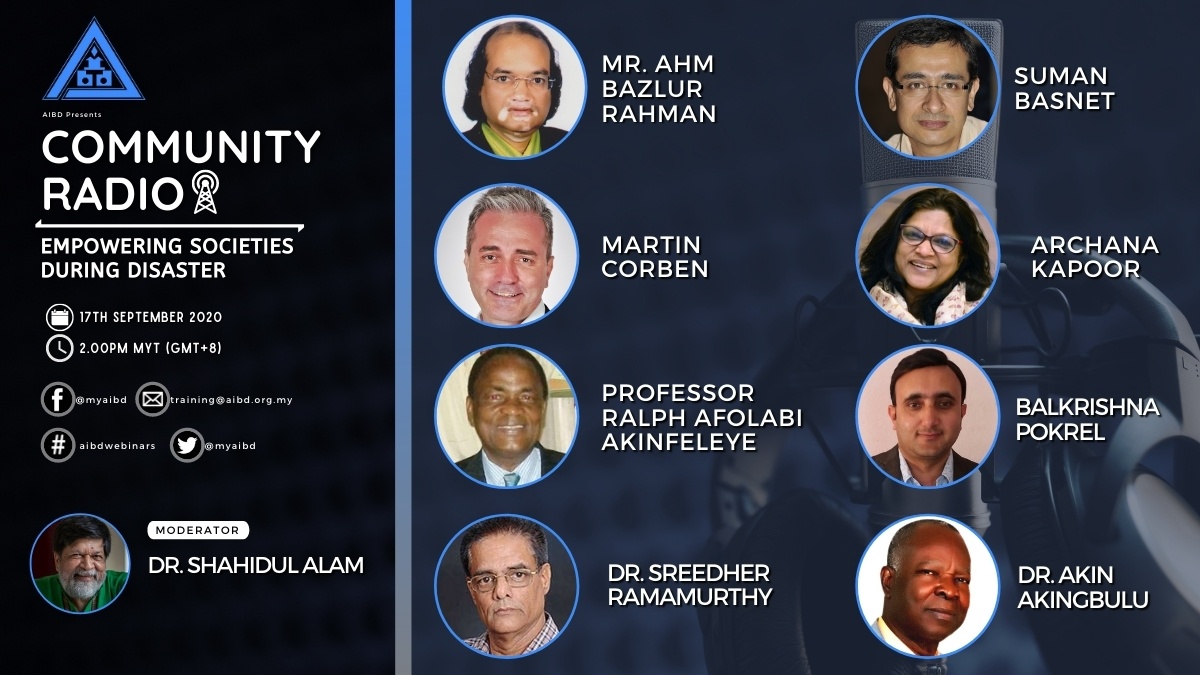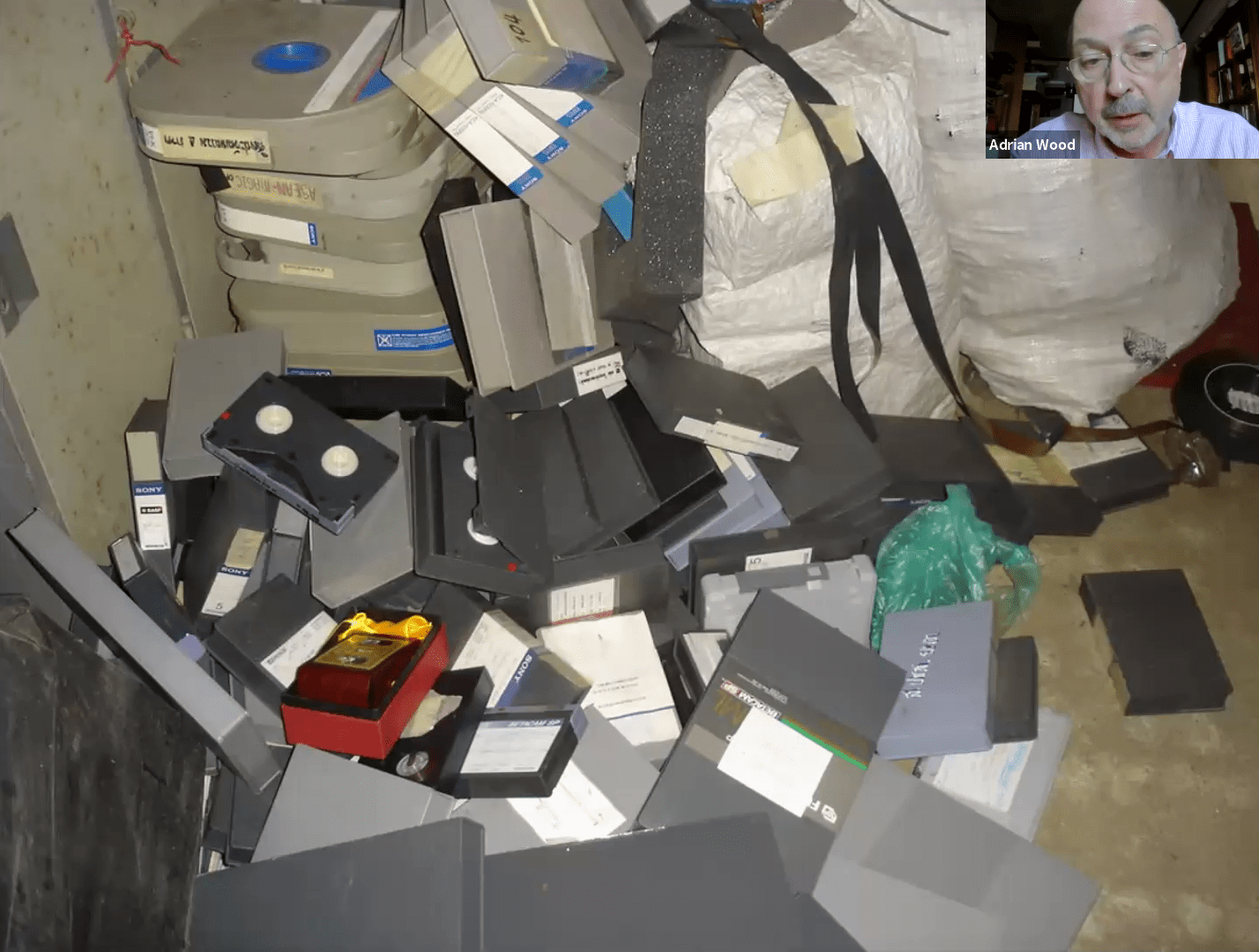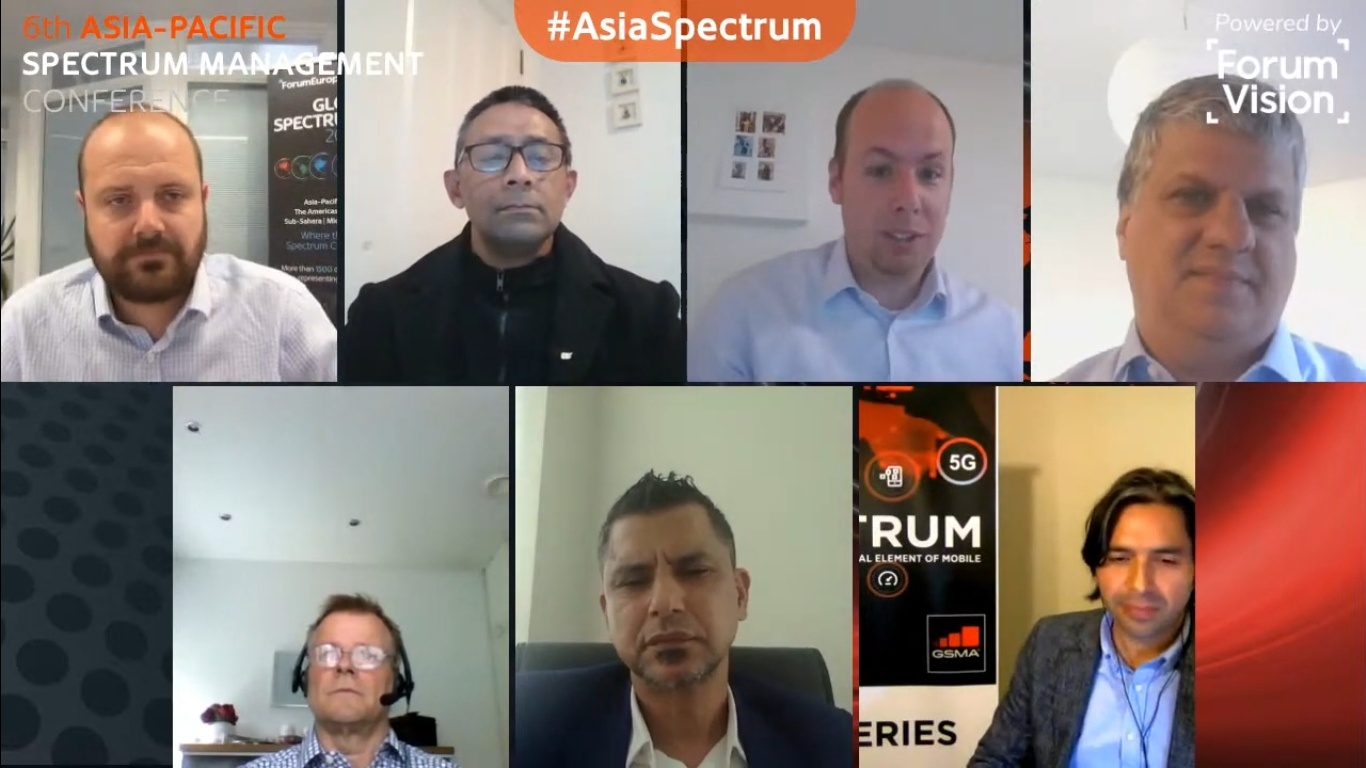AIBD Director, Ms Philomena Gnanapragasam, paid a courtesy call to the newly appointed Director General of Radio Television Malaysia (RTM) yesterday. Datuk Ruzain bin Idris comes to the media industry with a wealth of experience having served abroad as well as in several government ministries in several portfolios.
AIBD is looking forward to looking to working closely on several key areas with RTM to boost the media industry. We take this opportunity to wish Datuk Ruzian Idris a productive time ahead.
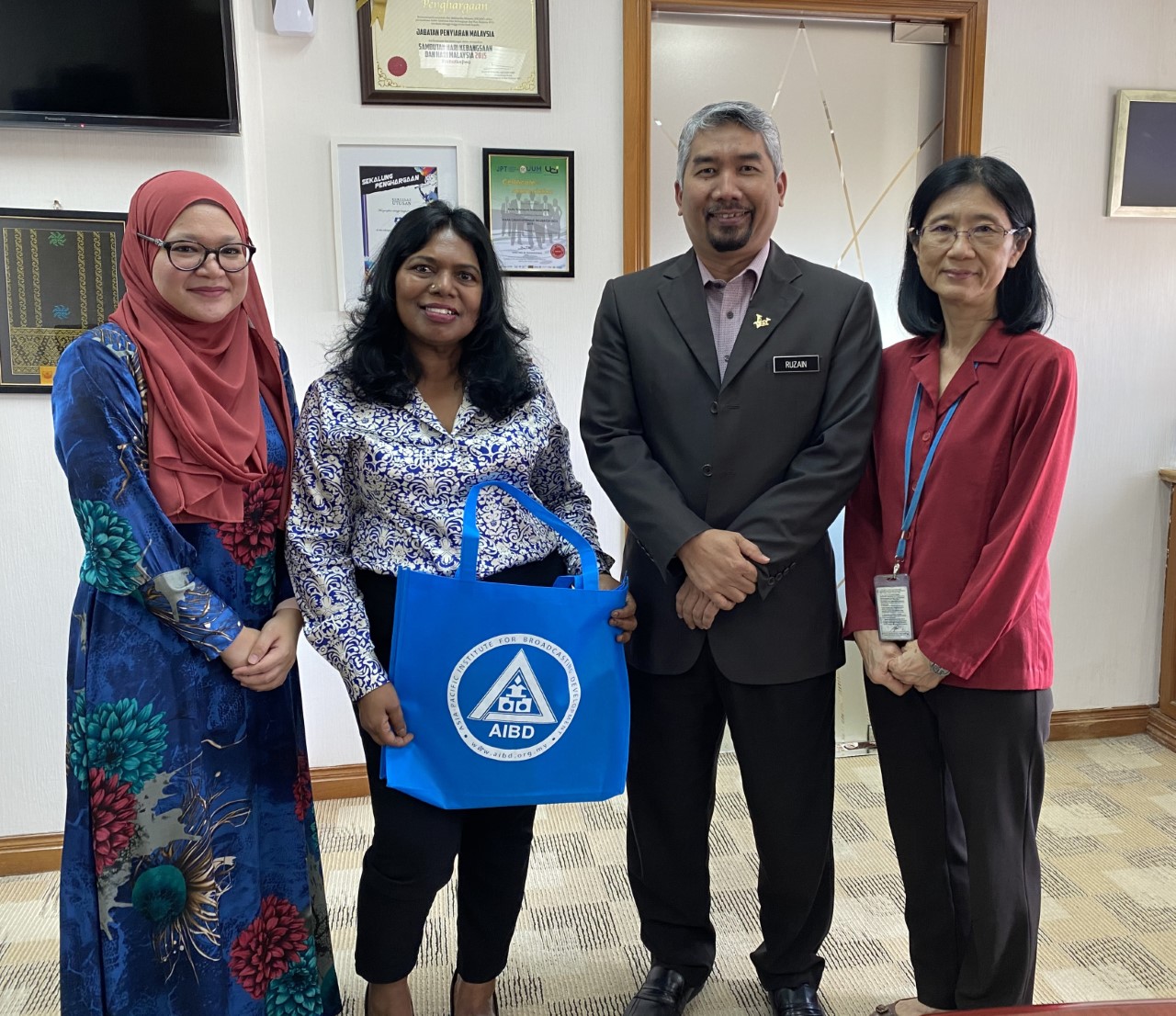
AIBD Courtesy call on Director General RTM
The Director AIBD, Ms Philomena Gnanapragasam, made a courtesy call
A webinar was told “Migrants & Refugees are All Humans”
Hate and discrimination targeted against migrants in many countries globally
AIBD/RAPA Cooperation in Broadcasting of Developing Countries
By: Lee Lai Mee, CCO AIBD in collaboration with Korea Radio
Trends & Future of Broadcasting Environment
The Asia-Pacific region is home to one of the largest
Cooperation in Broadcasting of Developing Countries
The COVID-19 pandemic has brought in enormous challenges to broadcast
How can legacy media survive in the digitalized landscape?
While all technology, media and entertainment sectors are negatively impacted
Challenging Year for Audit 2020
By: Lee Lai Mee, Chief Compliance Officer (CCO) The Internal Audit
Community Radio: Empowering Societies During Disasters
Community radio has always proved to be an effective medium
Latest Trends in Visual Archives & Digitisation
The year 2020 has highlighted many vulnerabilities of media organisations
Spectrum for Broadcasters to offer Content OTA?
By Dr Amal Punchihewa The 6th Asia Pacific Spectrum Management Conference was


